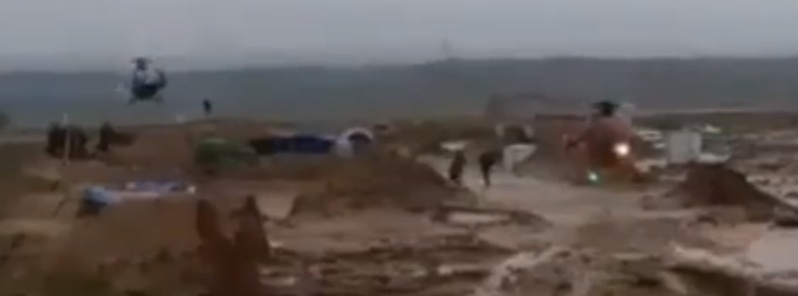Severe floods hit Iraq, leaving 3 000+ homes flooded and more than 12 people dead

Another round of heavy rain on November 22 and 23, 2018, caused severe flooding in parts of Iraq, leaving more than 12 people dead. The event follows weeks of unusually heavy and early rainfall and dozens of casualties.
The worst affected governorates are Ninewa and Salah al-Din, with multiple reports of bridges, roads and villages being inundated, UNOCHA reports.
An estimated 10 000 people in Salah al-Din and 15 000 people in Ninewa need assistance, including thousands of families living in IDP camps. Losses are still being assessed, but initial accounts from flooded areas include the destruction of homes, livestock, and household items.
According to DPA news agency, seven people were killed after the floods hit the town and district of al-Shirqat in the province.
Local media reported as many as 3 000 homes had been left at least partially submerged after rising levels of Tigris River, which runs through the district and the town.
"Rains flooded houses and farms, leaving some 3 000 people homeless," Ali Dodah, the mayor of Shirqat said. Many of the people escaped their half-submerged homes in small boats.
Rudaw news agency reported at least 12 people died as a result of floods in the province. The agency added that the floods damaged a camp housing of at least 30 internally displaced Yazidi families, with residents facing temperatures hovering around zero (°C).
Damage and casualties were also reported in the southern part of the country.
According to Kurdistan24, a two-year-old girl died and two others were wounded after a house collapsed in Basra's al-Jumaa neighborhood.
In the province of Dhi Qar, immediately northwest of Basra, local media outlets reported that a woman and her child were also killed after the roof of their house collapsed in the al-Rafa'i district, just north of Nasiriyah, the provincial capital.
Post-rain floods are a perennial issue in Iraq, Kurdistan24 said. They are caused in large part by chronically inadequate infrastructure, including inefficient or poorly-maintained urban rainwater management and sewage systems.
Featured image credit: Kurdistan24

Commenting rules and guidelines
We value the thoughts and opinions of our readers and welcome healthy discussions on our website. In order to maintain a respectful and positive community, we ask that all commenters follow these rules.